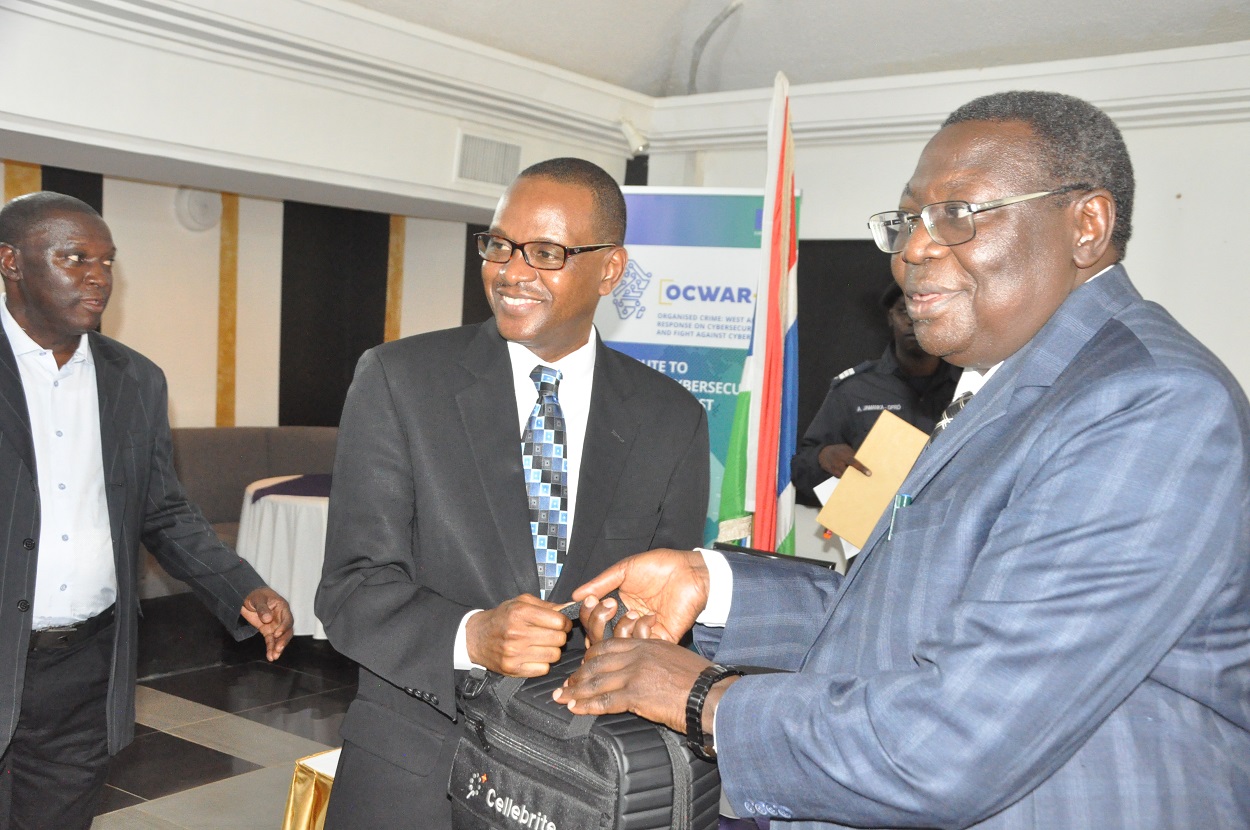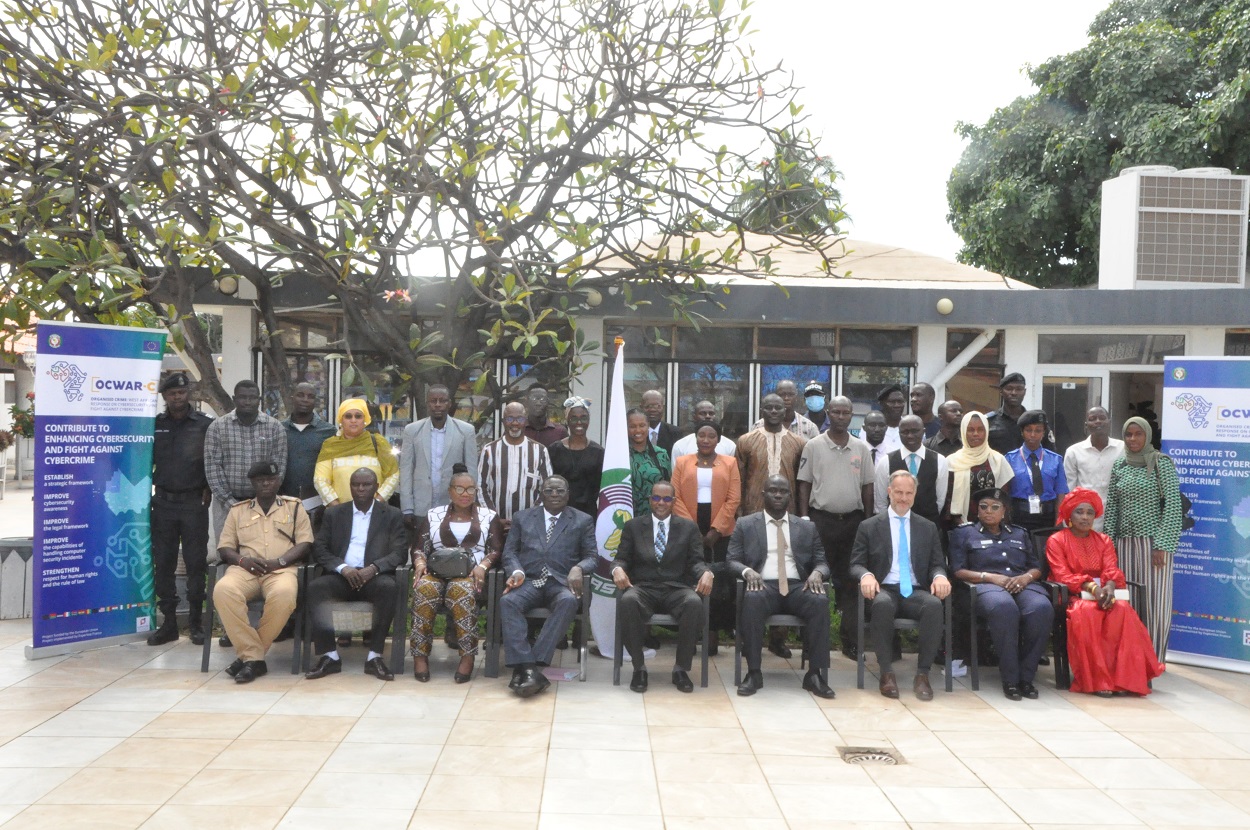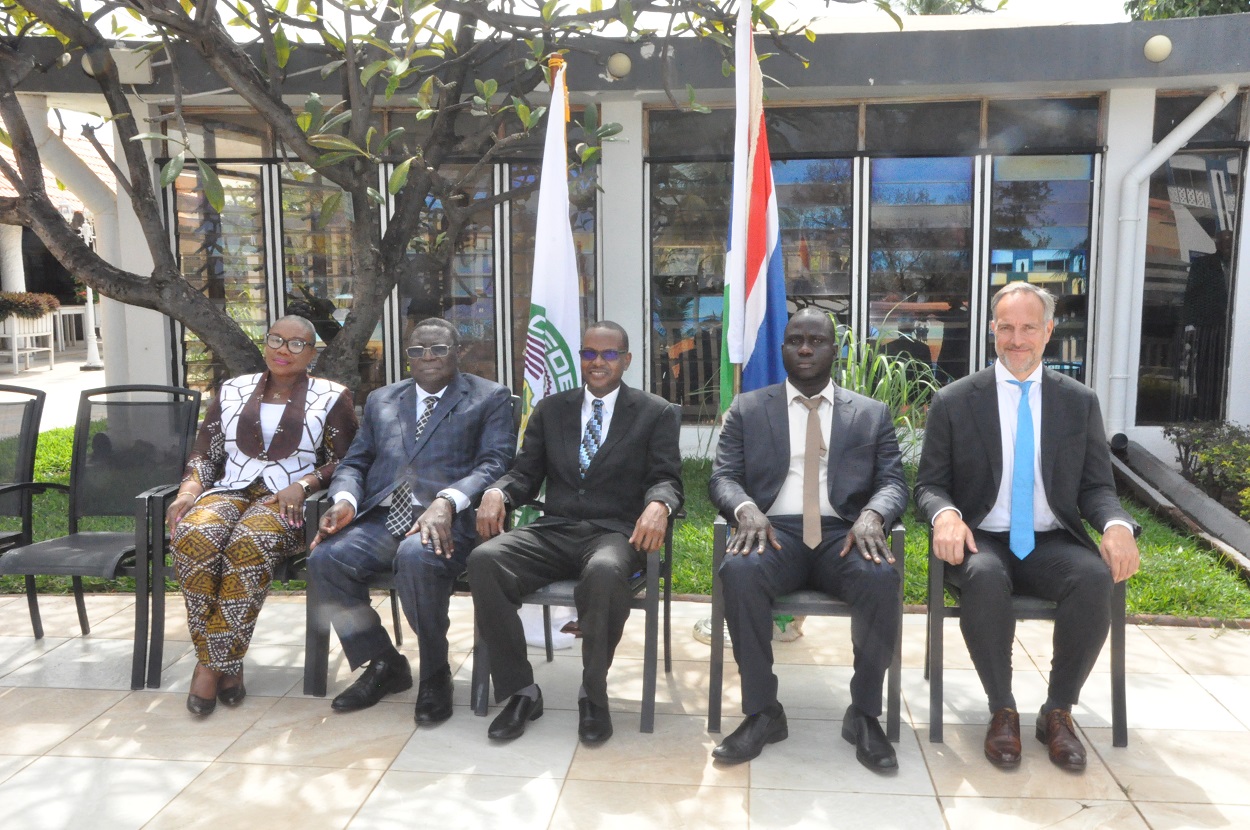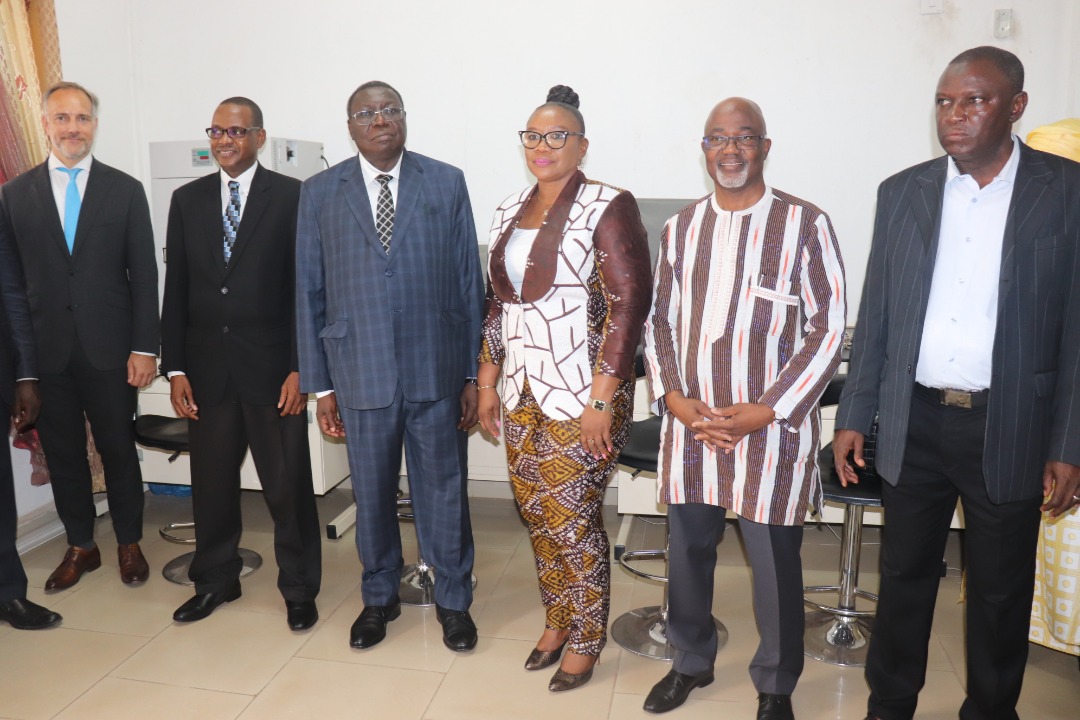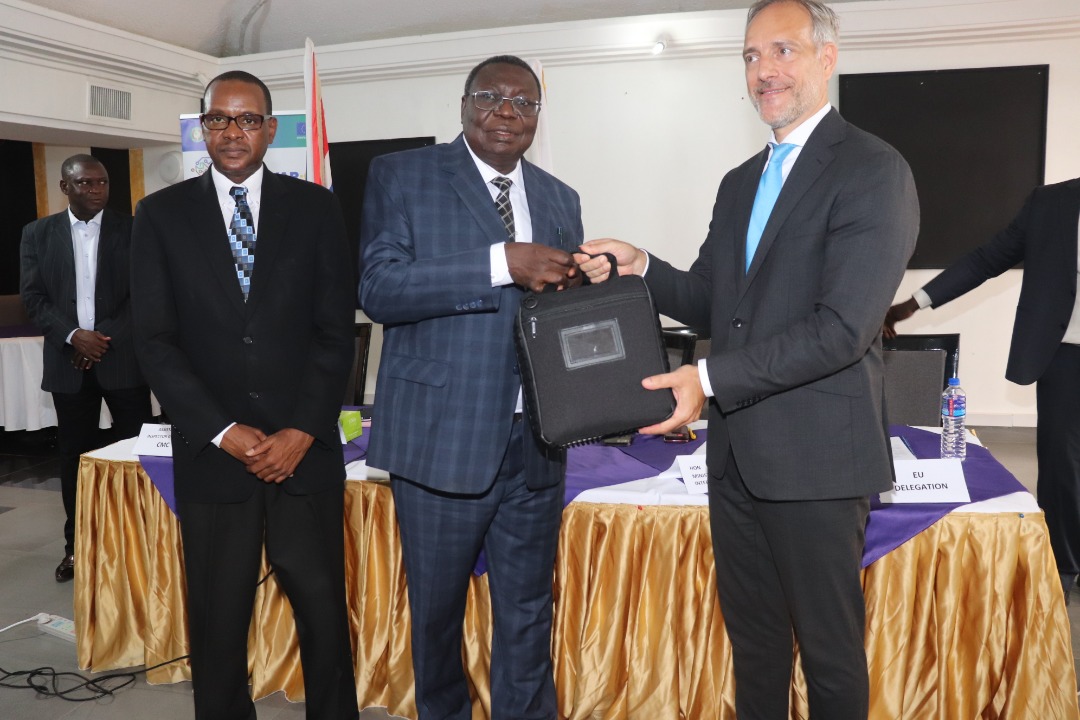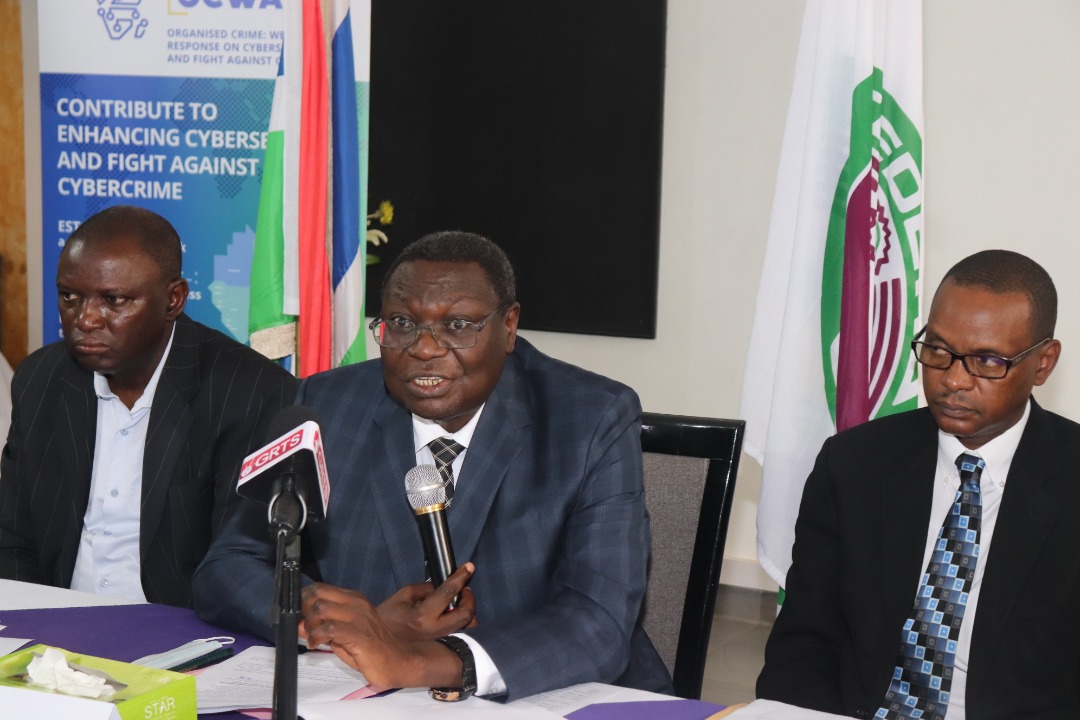Fight against cybercrime in West Africa: ECOWAS and the European Union provide a digital laboratory to The Gambia
21 Oct, 2022Banjul, (The Gambia), 18 October 2022. As part of the European Union-funded project “Organised Crime: West African Response on Cybersecurity and fight against Cybercrime” (OCWAR-C), ECOWAS officially handed over a digital laboratory to the Gambian authorities on Wednesday 19 October 2022 in Banjul, the Gambia to build the operational capacity of the structures in charge of digital forensic investigations.
The official handover of the cybercrime laboratory, a digital forensic tool, to the Ministry of Home Affairs through the Ministry of Telecommunications and Digital Economy of The Gambia, was done by the ECOWAS Commission, in collaboration with the European Union. By handing over this brand new laboratory to the Gambian authorities, ECOWAS and its partners wish to build the capacity of the Gambian police to effectively counter cybercrime in the country and to better cooperate with other Member States in terms of managing cybercrime problems.
The laboratory is equipped with state-of-the-art equipment, including forensic equipment, generic materials, software and licences. Before the relocation of this laboratory, training was provided to the Gambian police officers to develop and enhance their capacity to process digital evidence following well-established best practices and appropriate procedures. To this end, certificates of participation were issued to the recipients.
Several personalities took part in the ceremony which took place at the Atlantic Hotel and at the Headquarters of the General Directorate of the National Police. They are Mr Usman Bah, Minister of Telecommunications and Digital Economy, Mr Seyaka Sonko, Minister of the Interior, Mr Sediko DOUKA, ECOWAS Commissioner in charge of Infrastructure, Energy and Digitalization , the Representative of the European Union, the Resident Representative of ECOWAS in The Gambia, the Inspector General of the Gambian Police and the Project Coordinator.
In his speech, Commissioner Douka, among other things, gave some examples of threats and attacks recently recorded in Africa through the “African Cyberthreat Assessment Report” prepared by Interpol, which identified online scams, digital extortion, business email compromise, ransomware and phishing as the top five threats in Africa.
He also gave examples of threats from the Agari Cyber Intelligence Division (ACID) report which highlighted that 60% of the world’s business email compromise perpetrators are in Africa, specifically in 11 countries, 6 of which are in West Africa. In terms of losses, cybercrime reduced the GDP of Africa by 10% in 2021, resulting in a loss of 4 billion USD.
These examples and statistics have prompted the ECOWAS Commission and its partners to work towards ensuring a coordinated regional approach to address cybercrime issues through the launch of a cybersecurity agenda to support the securing of the common digital space, which is a growth market in West Africa. Some of the most advanced community texts on cybercrime and cybersecurity have been adopted by ECOWAS Member States, and the Commission has made the implementation of these instruments a priority during the current tenure of President Omar Alieu Touray.
The handing over of the laboratory will be followed by an awareness campaign on Friday 21 October on cybersecurity for a sample of 80 people, representing the country’s stakeholders involved in this activity, including state actors, IT managers of private structures and the general public. Digital hygiene challenges and the consideration of international good practices will be part of the topics that will be discussed during these sessions.
It should be recalled that OCWAR-C is an ECOWAS project funded by the European Union and implemented by Expertise France. Its primary objective is to contribute to improving cybersecurity and combating cybercrime in the member states of the Economic Community of West African States (ECOWAS) and Mauritania. More specifically, OCWAR-C aims to enhance the robustness and build the resilience of information infrastructure and the capacity of stakeholders involved in the fight against cybercrime.




